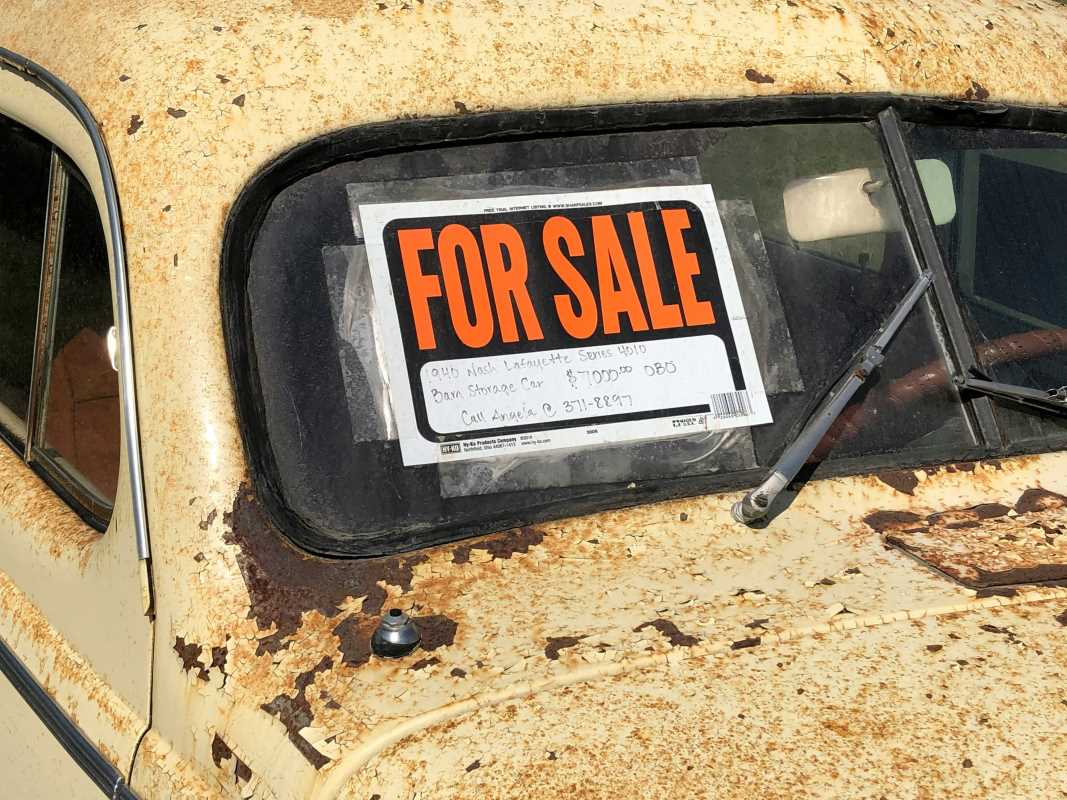Selling your car may seem like a straightforward task, but like squeezing into skinny jeans after the holidays, it’s often trickier than anticipated. From locking in a fair price to securing the right buyer, the process is full of potential pitfalls for the unprepared. While there’s no universal handbook, avoiding a few common mistakes can make your selling experience faster, smoother, and infinitely more profitable. If you’re gearing up to part ways with your trusty ride, take note of these key missteps and learn how to steer clear of them.
Overlooking the Power of Presentation
Your car may have been a loyal companion, but if it looks like it’s survived an apocalypse, getting top-dollar will be an uphill battle. One of the most common mistakes sellers make is failing to invest in their car’s appearance. It’s tempting to assume buyers will look past the crumbs in the cupholders or the streaks on the windows, but the truth is presentation matters. A messy or neglected car signals a lack of maintenance, even if you’ve been diligent about oil changes and tune-ups.
A clean, polished vehicle stands out to buyers. Start with the basics by washing and waxing the exterior to restore its shine. Pay special attention to cleaning the wheels and tires, as road grime can make them look far older than they are. Inside, vacuum thoroughly, wipe down all surfaces, and eliminate odors (pro tip: nobody likes the lingering scent of gym socks).
For those keen on making an even better impression, consider minor fixes like filling in scratches or replacing worn mats. Giving your car a fresh, cared-for vibe increases its perceived value and gives buyers the confidence that it’s been well-maintained.
Mispricing the Car
Pricing your car is a delicate balance between aiming high and staying realistic. A common misstep is setting the price too low or too high without proper research. If your price is too low, you risk leaving money on the table. On the flip side, if the price is too high, it can drive away potential buyers before they even send a message.
Accurate pricing starts with research. Use resources like Kelley Blue Book or Edmunds to get a sense of your car’s market value based on its make, model, year, mileage, and condition. Keep in mind that regional factors can also play a role; a convertible in Miami might fetch a higher price than the same car in Seattle, for example.
It’s also crucial to factor in any recent maintenance or upgrades you’ve made. New tires or an updated infotainment system can justify pricing slightly above average, but only if the rest of the car matches the asking price. Lastly, leave yourself room to negotiate. Listing your car just a touch higher than what you realistically hope to sell for allows buyers to feel like they’ve snagged a deal, while you hit your target price.
Neglecting to Prepare the Paperwork
Selling a car involves more than just handing over the keys and receiving a fistful of cash. It’s a legal transaction that requires proper documentation, and neglecting to have your paperwork in order can result in delays, lower offers, or even trouble down the line. This is one mistake that’s surprisingly easy to avoid, yet it’s one of the most common.
Before listing your car, gather all necessary paperwork. This includes the title of the vehicle, registration, and any loan payoff documents if applicable. Additionally, maintenance records can serve as an invaluable trust-builder. Potential buyers love to see a well-documented history of oil changes, tire rotations, and scheduled tune-ups. It reassures them that the car has been cared for and isn’t hiding any skeletons in its mechanical closet.
Another piece of the puzzle? The bill of sale. This document acts as a record of the transaction between you and the buyer, outlining details like the date, price, and vehicle information. Failing to prepare this in advance can lead to confusion or disputes later, so don’t leave it as an afterthought.
Giving Buyers the Power to Dictate the Deal
"It’s a seller’s market" is a phrase often tossed around, but that doesn’t mean buyers won’t try to take control of the negotiation. Another frequent mistake is letting buyers set the tone or dictate the terms of the deal. If you’re not prepared, it’s easy to feel pressured by lowball offers or last-minute demands, especially if you’re eager to close the sale.
The key to a successful negotiation is knowledge and confidence. Before you list your car, have a clear minimum price in mind and stick to it, unless you encounter a truly compelling reason to budge. Establishing boundaries early on, such as setting specific times for test drives and clarifying payment expectations (cash only or a verified cashier’s check), also helps prevent late-game surprises.
If you’re dealing with an overly aggressive buyer, remember that you’re not obligated to accept the first offer that comes along. The beauty of selling your car privately is that you get to set the rules. If someone tries to shortchange you or bogs you down in endless back-and-forth, don’t be afraid to walk away. It’s your car, and finding the right buyer is worth the extra patience.
Forgetting the Importance of Marketing
Even if your car is showroom-ready and priced perfectly, you’ll struggle to attract buyers without effective marketing. Overlooking this crucial step is akin to planning a fabulous housewarming party but forgetting to send out invitations. If your online photos are blurry or your listing reads like an afterthought, don’t expect buyers to come knocking.
Start with high-quality photos that showcase your car from all angles. Snap pictures in good lighting, capturing details like the interior, dashboard, tires, and rear. If your car has standout features, like a moonroof or heated seats, make sure they’re highlighted in both the images and the description.
When crafting your ad, keep it clear, honest, and detailed. Mention the make, model, year, mileage, and any recent work done. Buyers also appreciate transparency about quirks or flaws, as it helps manage expectations. Platforms like Craigslist, Facebook Marketplace, and car enthusiast forums are great places to list your car, but don’t underestimate the power of word-of-mouth. Share the listing with friends or colleagues who might know someone looking for a vehicle.
 (Image via
(Image via





